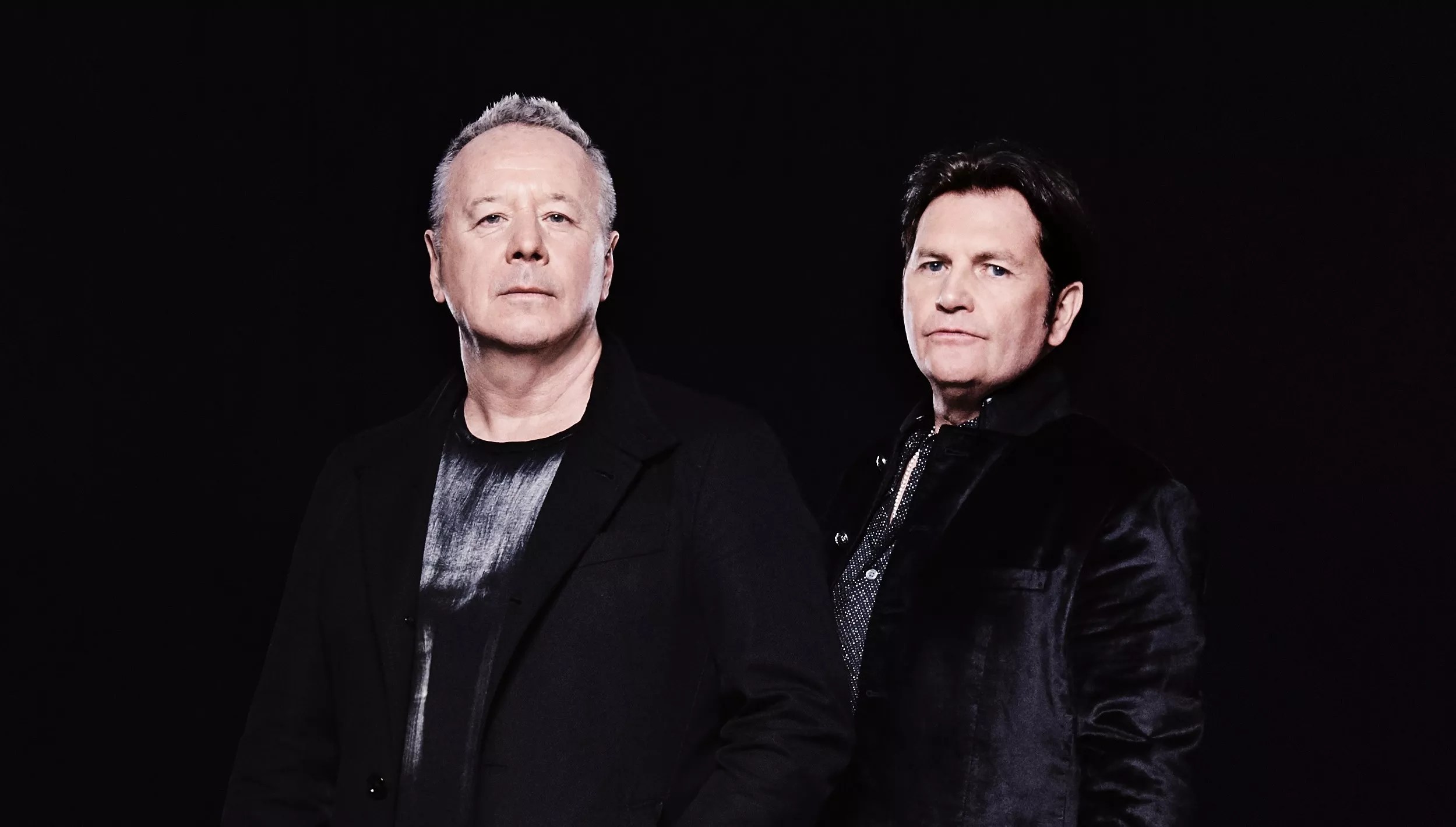
Dean Chalkley

Audio By Carbonatix
Simple Minds is coming to play Ball Arena on Tuesday, May 27 – a show that won’t be threatened by Nuggets playoff basketball. (Sorry, Katy Perry.) As part of the KOOL Tour, the show will include fellow ’80s-era groups Soft Cell and Modern English as openers.
“[We’ve] always felt welcome in Denver,” says Jim Kerr, a founding member of Simple Minds. “Always enjoyed being there. A highlight of any tour-hand on heart.”
Simple Minds is, of course, best known for its smash-hit connection to The Breakfast Club. The song “Don’t You (Forget About Me)” shot to number one on the charts just as director John Hughes’s ode to high school was dominating American theaters in 1985. The band’s newest work, Live in the City of Diamonds, dropped just this past April – a recording of a sold-out show at Amsterdam’s Ziggo Dome.

Live in the City of Diamonds is Simple Minds just released album
BMG
It’s a credit to the band that The Breakfast Club‘s soundtrack album sold so well – the Simple Minds track is by far the best on the list, with a respectful nod to Wang Chung’s “Fire in the Twilight” and Karla DeVito’s “We Are Not Alone” mainly being memorable for the iconic movie dance sequence it accompanied. The popularity of “Don’t You” helped make the studio album Once Upon a Time a triple-platinum success, despite not including that song until it was expanded and re-released decades later. The original album nonetheless spawned three memorable hits in the U.S.: the ’80s staples “Alive and Kicking,” “Sanctify Yourself,” and “All the Things She Said.”
What mid-’80s fans of Simple Minds may not know is that the “breakout” disc was actually the band’s seventh studio album. The members actually got their start in 1977 as a Glasgow punk band called Johnny and the Self-Abusers, who produced exactly one single (“Saints and Sinners” on Chiswick Records) and broke up as a band the very next day. “It was never meant to last,” says Kerr. “A product of its time. Formed within a matter of days and amazingly finding ourselves playing our very first gig roughly the same amount of time later, it was all about instantly joining in with the fun of an emerging Glasgow scene. Some bands form and ‘woodshed’ for a long time before venturing out to show what they have to offer. Not us!”
Kerr and bandmate Charlie Burchill parted ways with the others from that first band, and got the name of their new group from a line lifted from David Bowie’s “Jean Genie.” Like the formation of the band itself, it was something that happened quickly. “We particularly identified with the marriage of its classic blues-rock riff,” recalls Kerr, “layered under the then most futuristic sounding lyrics. Inspirational and ahead of its time. For us, Bowie was a prophet of so much that was to follow.”
From the late ’70s through mid-’80s, Simple Minds grew a following that was primarily European – something that frustrated Kerr then and still does. “I wish we’d had the chance to tour as much in the U.S. as we did in Europe during our fledgling years,” he says. “But it wasn’t to be. We struggled to get a record deal in the U.S. during the first five years, resultantly giving an imbalance to our profile on differing sides of the Atlantic. One that exists to this day.”
But stateside success did eventually come to Kerr and Burchill, though perhaps not in a way they initially welcomed. When they were offered “Don’t You (Forget About Me),” a song written for The Breakfast Club by Keith Forsey, an award-winning writer for songs from Flashdance, Ghostbusters, Beverly Hills Cop, and more, they turned it down. Forsey then offered the song to Bryan Ferry of Roxy Music and Chrissy Hynde of the Pretenders, who likewise declined. Finally, Simple Minds relented – and it became their biggest hit.
Anecdotally, the song was never a favorite of the bandmates, despite the opportunities it afforded them. They spoke poorly of it when asked in interviews, and according to an article in the Financial Times, Kerr once said that he “wanted to vomit” every time they played it in concert. In that same article, Burchill admitted they’d softened on the song in the years since. “It’s obviously a brilliant, well-crafted pop song,” he said. “I’m embarrassed we dissed it so much.”
Kerr now agrees, though his tone suggests that maybe the thing that makes him want to vomit is just the fact that he’s asked about all of this so much. “Success has to be appreciated in whatever form it comes,” he says. “Likewise, the notion that it can come from the most unlikely places, all of which is how it all seemed to us back in the spring of 1985. ‘Don’t You’ means so much to so many people and subsequent generations have embraced the song. Recently passing a billion and more streams on Spotify means it is as popular now as it was when it topped the Billboard charts. I’m struggling to find any major downside in that story.”
Fortunately for Simple Minds and the fans that love its entire (and considerable) song catalogue, the band is far from a one-hit wonder; it continues to put out new music and play its old hits before live audiences on a consistent basis, according to Kerr.
“Our young dreams came true,” he says. “We dreamed of being in a great live act – one that toured the world playing songs that we created and dragged out of our imaginations. Lo and behold, it’s brought so much purpose to our lives.”
Simple Minds will headline the KOOL Concert, with Soft Cell and Modern English, 7 p.m. Tuesday, May 27, at Ball Arena. Tickets for the show are still available.